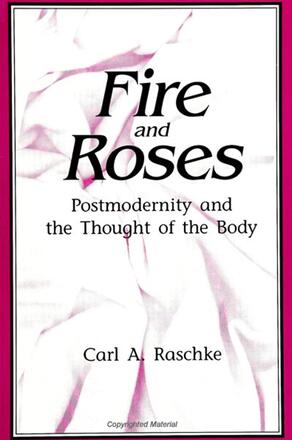
Fire and Roses
Postmodernity and the Thought of the Body
Alternative formats available from:
Interprets postmodernity in relation to the body--the "somatological a priori," and applies current critical theory to issues of gender, popular culture fashion, and magic, as well as the Western philosophical/theological tradition.
Description
Covering a wealth of authors and literature from Baudrillard to Foucault, from Freud to Lacan, from Plato to Heidegger, from the study of women's fashion to Girardian perspectives on the sacrificial victim, Fire and Roses shows that the "postmodern theme" is something much more than the play of disconnection and diversity. Postmodernism is, in fact, a kind of "epistemology" of the somatic remainder that has been the "stranger" in the house of Western thought.
Carl A. Raschke is Professor of Religious Studies at the University of Denver. He is co-editor of Lacan and Theological Discourse, also published by SUNY Press.
Reviews
"What is most compelling in this book is its original interpretation of postmodernity in relation to the replacement of a reflexive consciousness by a corporeal subject. Using his notion of a corporeal or somatological a priori, Raschke considers the Western tradition in terms of two of its generative metaphors, that of the dualistic soul/body and that of the resurrection of the body. He moves easily from examining contemporary cultural issues of gender, popular culture, fashion, and magic to the nuanced rejection of by now standard postmodern critiques of Platonism and of Hegel in order to uncover new postmodern dimensions. Raschke can be counted on to provide refreshing insights that often go against the grain of other postmodern writers without reverting to pre-modernity. He is one of the truly fertile minds working in the area of religion and postmodernism. " — Edith Wyschogrod, Rice University